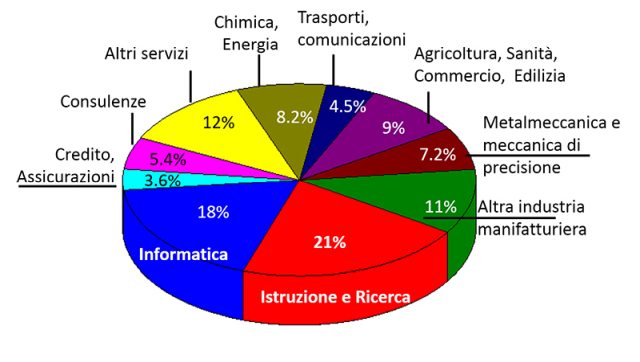Occupational outlets
In general, occupational outlets concern activities where it is necessary to be able to apply the scientific method to problem solving, data collection and analysis, and modelling.
The Degree Course in Physics trains the professional figure of Junior Professional Physicist (UNI standard 11683: 2017, 'Non-regulated professional activities - Professional physicist - Requirements for knowledge, skills and competence'), who can work in public and private institutions, in various industrial sectors (e.g. electronics, optics, computer science, mechanics, acoustics), in the biomedical and environmental field, in laboratories (e.g. control, management and calibration of instruments, characterisation of materials) and in services (e.g. radiation protection, environmental control and safety, programming).
The first-cycle physics graduate can find employment in companies characterised by advanced methodologies in various fields of application.
By way of example:
- Environmental measures (environmental data monitoring, energy performance of buildings, fire prevention, renewable energy, smart-grid).
- Consultancy on technical and technological installations (Certifying Bodies, Courts, Banks).
- Industrial and management consulting (problem solving and problem setting).
- Technology transfer (Patent studies, Spin off, Enterprise-incubator).
- Research and development (high-tech and low-tech companies, new applications, new methodologies, new products).
- Econophysics (physical-mathematical models for solving financial problems and stock market trends).
- Biomedicine (design, production, marketing and maintenance of medical equipment and installations, including health telematics and telemedicine).
Quality control.
- Occupational safety control.
- Plant safety control.
- Production techniques for advanced materials.
According to ISTAT coding, the course prepares for the profession of:
- Physics and nuclear technicians - (3.1.1.2)
- Application technicians - (3.1.2.0)
- Energy-saving and renewable energy technicians - (3.1.3.6.0)
- Medical and medical diagnostic equipment technicians - (3.1.7.3.0
